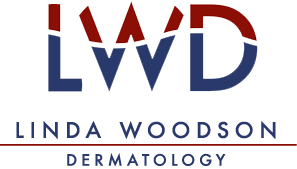Effective Medical Dermatology Treatments
At Linda Woodson Dermatology, we believe in aggressively treating eczema, acne, allergic conditions, and more to bring patients relief from their symptoms. In addition, we carefully evaluate your skin condition, work to determine the cause, and devise a plan to control or eliminate flares.
Our Treatments
We treat for the following:
- Acne
- Eczema
- Allergic conditions
- Psoriasis
- Skin cancer
- Rashes
- Shingles
- Pigment disorders
- Spider veins
- Skin tags
- Moles
- Birthmarks
- Rosacea
- Mohs Surgery
- PRP - hair loss treatment
- Threading - nonsurgical facelifts
- Cosmetic injectables
Eczema Treatment
Eczema also called atopic dermatitis, is one of the diagnoses you get when you have red spots on your skin that become inflamed and itchy. At Linda Woodson Dermatology we recognize the symptoms right away and recommend the best treatment for eczema based on your current health and medical history. Children are prime candidates for eczema, but it can appear at any age. It’s a chronic condition that has no cure yet but often is accompanied by hay fever and asthma. While it can’t be cured, the best eczema treatment helps to prevent additional outbreaks of the uncomfortable skin condition and reduces the severity of each outbreak.
Psoriasis Treatment
Psoriasis is a chronic inflammatory condition that can affect the skin and joints. In the skin, psoriasis produces red, scaly lesions. These lesions usually appear the elbows, knees, and scalp, but can appear anywhere on the body. The disease is chronic, meaning that symptoms often come and go over time.
Skin Disorders Such as Melasma and Hyperpigmentation
Hyperpigmentation and melasma are common skin conditions which generally affect the face. While hyperpigmentation and melasma are similar dermatological skin conditions, as they cause an increase in the pigmentation of the skin, there are some differences.
- Hyperpigmentation typically appears as dark spots on the any area of the skin.
- Melasma appears as brown or grayish-brown marks only on the face. Melasma is more prevalent in women than in men.
- Both of these conditions result from melanin pigment found in the skin.
Actinic Keratoses
Actinic keratosis (ak-TIN-ik ker-uh-TOE-sis) is a rough, scaly patch on the skin that develops from years of sun exposure. It’s often found on the face, lips, ears, forearms, scalp, neck, or back of the hands. Also known as solar keratosis, actinic keratosis grows slowly and usually first appears in people over 40. Left untreated, the risk of actinic keratoses turning into a type of skin cancer called squamous cell carcinoma is about 5% to 10%. Please remember to prioritize your skin health and schedule a full body check with our dermatology professionals today.






